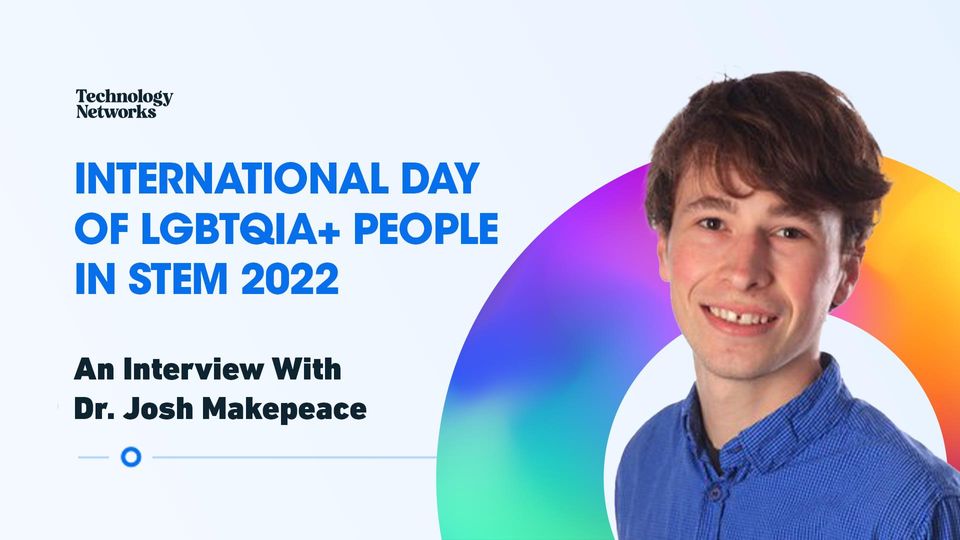International Day of LGBTQIA+ People in STEM 2022: An Interview With Dr. Josh Makepeace

Complete the form below to unlock access to ALL audio articles.
November 18 is International Day of LGBTQIA+ People in STEM 2022. Technology Networks had the pleasure of interviewing five individuals currently working in STEM who identify as LGBTQIA+ to learn about their experiences, opinions and ideas to inspire the next generation.
The article showcases the key insights gained from these trailblazers as a collective, but we want to share their individual conversations so that you can further understand their journeys, challenges and future perspectives as LGBTQIA+ individuals in science. In this interview, we spoke to Dr. Josh Makepeace, who identifies as a gay man and is a lecturer in materials chemistry and UK Research and Innovation future leaders fellow at the University of Birmingham, to learn more about his research into sustainable energy storage and experiences working in STEM.
Kate Robinson (KR): Your current research focuses on sustainable energy storage. Can you tell us more about this work?
Josh Makepeace (JM): We’re exploring different methods for storing energy produced from renewable power. Energy storage is critically important for a whole range of applications, from balancing discrepancies between renewable power generation and demand on the electricity grid to ensuring we can achieve zero-emissions transport. We’re developing materials that could be used in next-generation batteries and also catalysts for synthesizing sustainable fuels like hydrogen and ammonia. Sustainable fuels are a really interesting piece in the puzzle, as they may offer a way for connecting areas with attractive wind and solar potential with areas that have high-cost renewable electricity. This could unlock a global trade in renewable energy.
KR: What do you enjoy most about working in STEM and how did your interest in science originate?
JM: I love working in chemistry because it combines the thrill of discovering something new or making a new material with the ability to contribute to new technologies that might help address the climate crisis. I’ve always loved finding out about how things work and thinking creatively to solve puzzles, and the exciting experiments really drew me to chemistry specifically.
KR: Have you faced any obstacles in your career due to identifying as LGBTQIA+?
JM: I’ve been very fortunate to have been shown a lot of support by colleagues in my workplace, so the main thing I would view as an obstacle was the lack of obvious role models when I was starting out in my career. It took a long time before I knew anyone in academia who was out, and so it was hard to see myself as belonging, or that I would ever fully be “myself” at work. Things have improved in recent years with initiatives like LGBTQIA+ STEM day, but I think we still have a long way to go to foster that sense of belonging in the workplace more broadly. I’m in a relatively privileged position but other sections of the LGBTQIA+ community still face very active discrimination.
KR: If you could give one piece of advice to young LGBTQIA+ researchers beginning their career, what would it be?
JM: I would say that there is a community of LGBTQIA+ researchers out there, you might just have to look for them! Social media can be a great way to connect with researchers around the world and share experiences. It’s important to see that there are people out there like you doing STEM research and making their mark!
Dr. Josh Makepeace was speaking to Kate Robinson, Editorial Assistant for Technology Networks.



